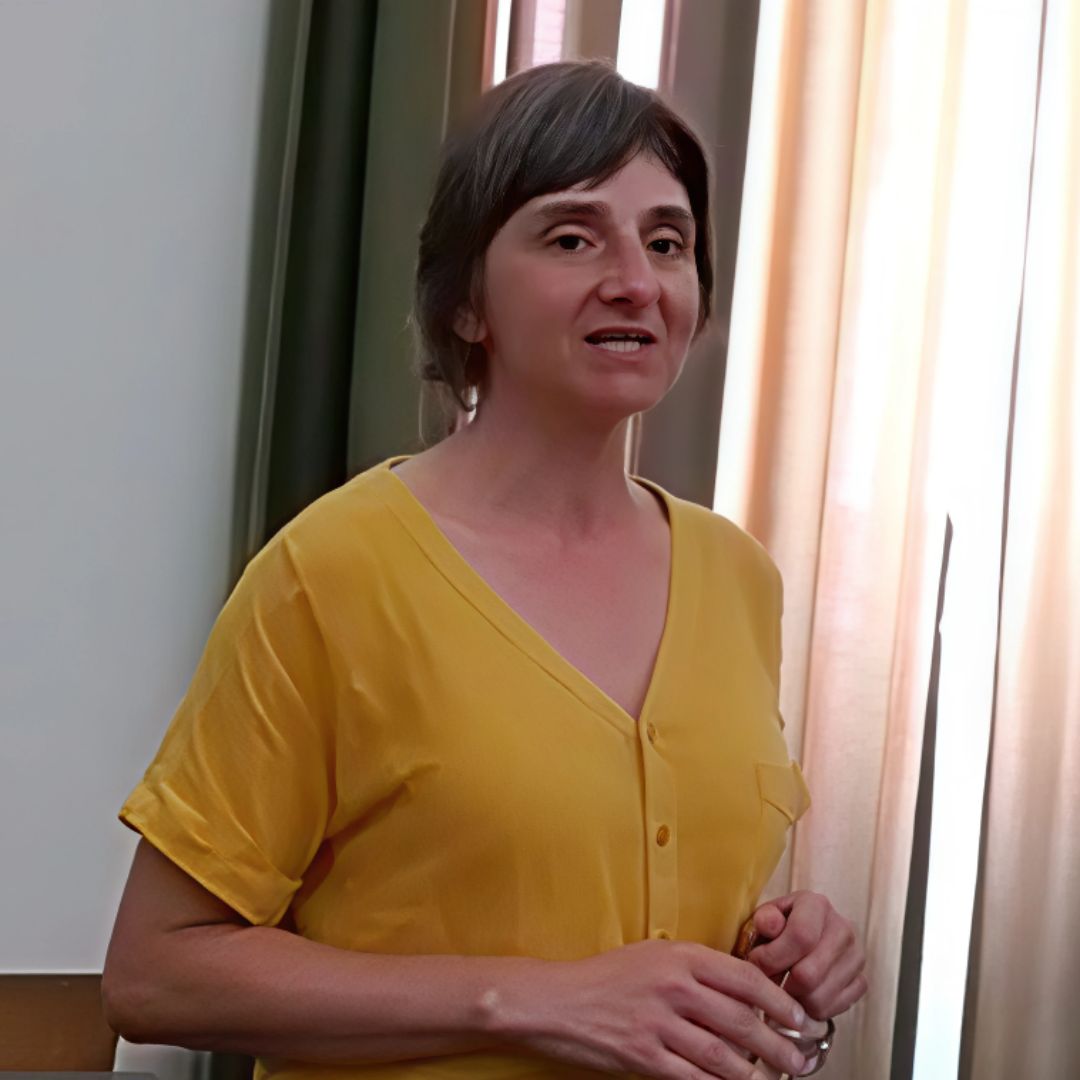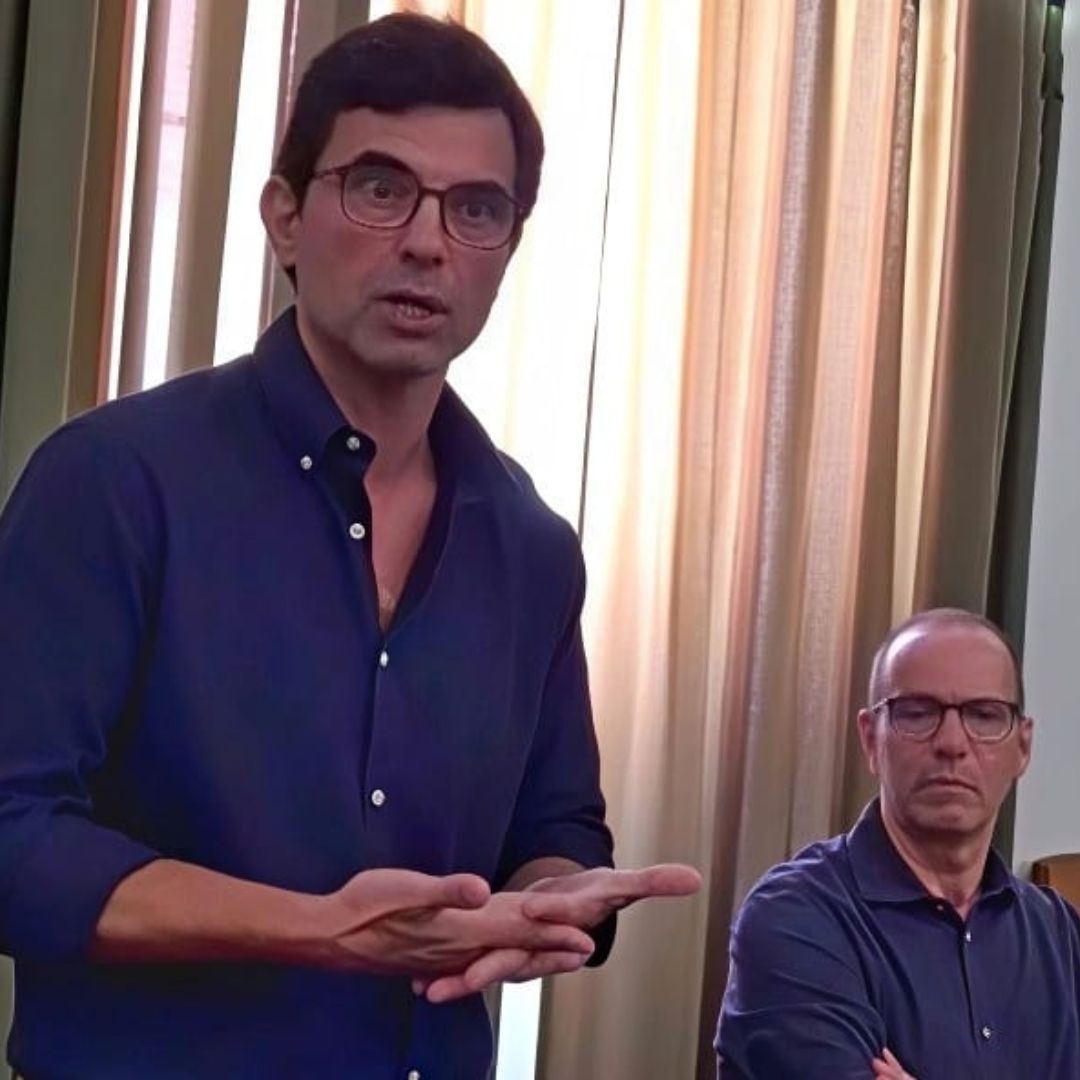The challenges of marine biology in debate at the Geographical Society
On June 23, the Lisbon Geographical Society hosted a session open to the public dedicated to thinking about the future of our seas. Under the theme “The challenges of Marine Biology for the 21st century”, the event brought together researchers Paula Chainho and Bernardo Quintella from MARE/ARNET at the Faculty of Sciences of the University of Lisbon (FCUL) and João Silva from CCMAR-UAlg. Ricardo Melo, also from MARE/ARNET-FCUL, moderated the event.
Paula Chainho began by issuing a direct warning: the number of non-indigenous marine species in Portugal has been growing at a worrying rate. “There is no immigration of biodiversity,” she said, drawing attention to the way in which these species reach us. They are often inadvertently transported by boats or introduced through practices such as aquaculture or the use of live bait. The result is a growing imbalance in ecosystems, with impacts ranging from the environment to the economy. According to the researcher, more than 80% of known introductions have taken place in the last 20 years. Cases like that of the Japanese clam, a dominant species in several national estuaries, illustrate the complexity of the challenges, especially when social and economic issues are involved.
In his speech, Bernardo Quintella focused on Marine Protected Areas (MPAs) and how they have been implemented in Portugal. The country has taken important steps in creating new areas, moving closer to its international commitments. However, he warned, there is still a long way to go. “It's one thing to create a marine protected area, but it's quite another to manage it effectively, to ensure that it is fulfilling the objectives for which it was created.” The researcher highlighted the importance of involving local communities, defining zones with different levels of protection and ensuring that there are means to supervise and monitor what happens on the ground.

A dynamic debate followed, where views on science, management and technology crossed paths. One of the themes that resonated most in the room was that of monitoring: the persistent work of returning to the same place time after time to see what is changing. The researchers stressed that monitoring is not just about collecting data. It's about observing, interpreting and acting in time. And for this to happen, we need resources, continuity and an appreciation of this type of work, which is so often forgotten.
New tools, such as environmental DNA, were also discussed with enthusiasm and caution. They make it possible to detect species much more quickly, but their results need to be well interpreted and, where possible, confirmed by classical methods. In addition, there were references to developing technologies, such as more sustainable anti-fouling materials (materials that prevent marine organisms from attaching themselves to boats) or remote sensors applied to coastal zones, which have the potential to transform the way we monitor the ocean.
The relationship between science and politics was not forgotten. The growing effort to communicate results and recommend solutions was acknowledged, but also the frustration of seeing political decisions that ignore or postpone the knowledge already available. “We are heard, but not always in the time we would like,” said Paula Chainho, in a tone that was both realistic and hopeful.
The session ended with a collective appeal. We urgently need to do more and better for the health of our oceans. This involves research, yes, but also dialog, cooperation between institutions and the real involvement of communities. Because the challenges of marine biology are not just those of science. They belong to all of us.
